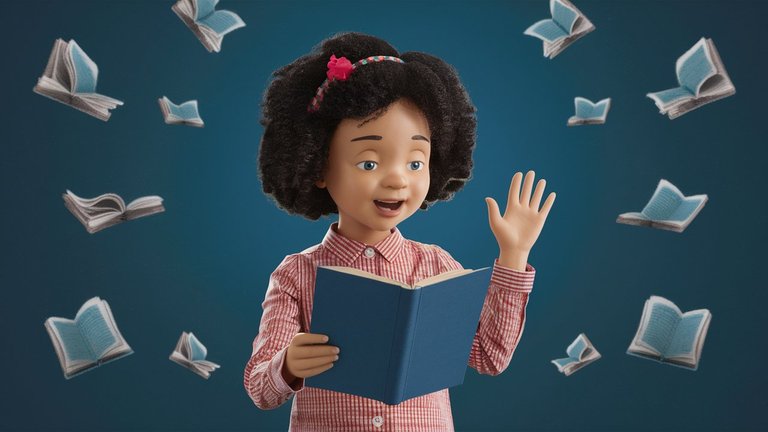Allen Ginsberg, an American writer and poet once said "Poetry can be described as the one place where people can speak or say their original human mind. Poetry serves as an outlet to properly reveal or say in public what is known or hidden in private".

source
Poetry which is one of the three genres of literature is subdivided into oral and written poetry. In the olden days, poetry was used as a form of oral communication although, one of the challenges encountered was that since the message was passed by word of mouth, alterations were made either by omissions, or addition of narrative items, or by elaboration; these alterations can change the original or authentic form of the message.
Poetry can also be described as the expression of an intention, imagination, emotions, or feelings through spoken words. Sometimes the poet communicates his or her message to the audience without necessarily directing the message to anyone in particular or being specific.
Poetry as a challenging genre
For many students who study literature, poetry is a difficult genre because it is not easily understood and is rarely read for entertainment or leisure purposes compared to prose. Poetic forms may take the shape of rhythms which may be in the form of songs, chants, incantations, etc.
In comparison with other genres of literature, poetry is usually organized and rendered in a special kind of language. A sense of direction can be located through indirection when it comes to poetry. The structural pattern and framework of poetry give the reader an idea of how to distinguish if the poem is Lyrical, narrative, prose-like, or stanzaic.
Oral Tradition & Storytelling
Professor F.B.O Akporobaro in his book titled "Introduction to African Oral Literature" ( in 2012), describes man as a story-telling being who loves to sing, dance, and be involved in religious worship as his sources of pleasure and mode of existence.
He went further to say that the written words we have today are only a product or outcome of the oral forms which are the earliest and original medium of self-expression and artistic creativity in time past.
Long ago, storytelling especially in rural areas, where young children gathered around their parents or an elder in the community to listen to stories, these stories may be about their historical background, wars, animal kingdom (which are usually the most interesting ones) or life generally.
These stories are communicated by word of mouth to the audience by the storyteller and the audience listens with keen interest with the sole intention to teach and inculcate moral values to the audience.
Usually, both the poet and oral storyteller possess the ability to improvise in their performance by using their creative originality or skills to introduce new and exciting words, images, or names of objects and characters into their performance or stories.
As a young child, I have had the experience of listening to the stories of how the tortoise broke its shell in about three different forms from three different individuals, although each story had the same moral lessons it was quite difficult to distinguish or tell which was the original story.
Classification of Poetry
Poetry can be generally classified or grouped into three major genres: narrative poetry, dramatic poetry, and lyrical poetry.
In Narrative poetry, poetry takes the form of telling a story, it is usually longer and lengthy, as the narrator recounts a series of events. while dramatic poetry is usually used in plays containing dramatic actions and lyrical poetry deals with the expression of one's feelings or attitude.
In our contemporary world today, poetry and storytelling have been modernized to suit the times we are in. Just as we had it in the times past, it is really rare these days to find young children gathered at the market or village squares under the moonlight or even at their homes after dinner to listen to stories.
According to Prof. F.B.O Akporobaro, Poetic genres are subdivided into music poetry which may include: love songs, work songs, ballads, religious songs, initiation songs, war songs, marriage songs, bridal chants, and drinking songs. The second class or group which is the recitative poetry includes incantations, praise poems, divination, poetry, heroic, recitations, riddles, myths, and epic. This shows that poetry spreads across every aspect of our human existence from birth, marriage, death, and burial.
The aim of storytelling & poetry
The aim of the storyteller or poet is usually to convey a message and at the same time produce some kind of change in the audience, these changes may cause the audience to become more aware of the subject matter, intelligent, or motivated to seek to learn more. These stories are consciously deposited in the human mind and have a way of shaping our personalities as regards what we say or think in the course of our relationship or conversation with one another.
References:
Introduction to African Oral Literature: A Literary-descriptive Approach
Facing writer's block? Join the lnleo June Writing Prompt today and say goodbye to, "I don't know what to do write about today".
Posted Using InLeo Alpha